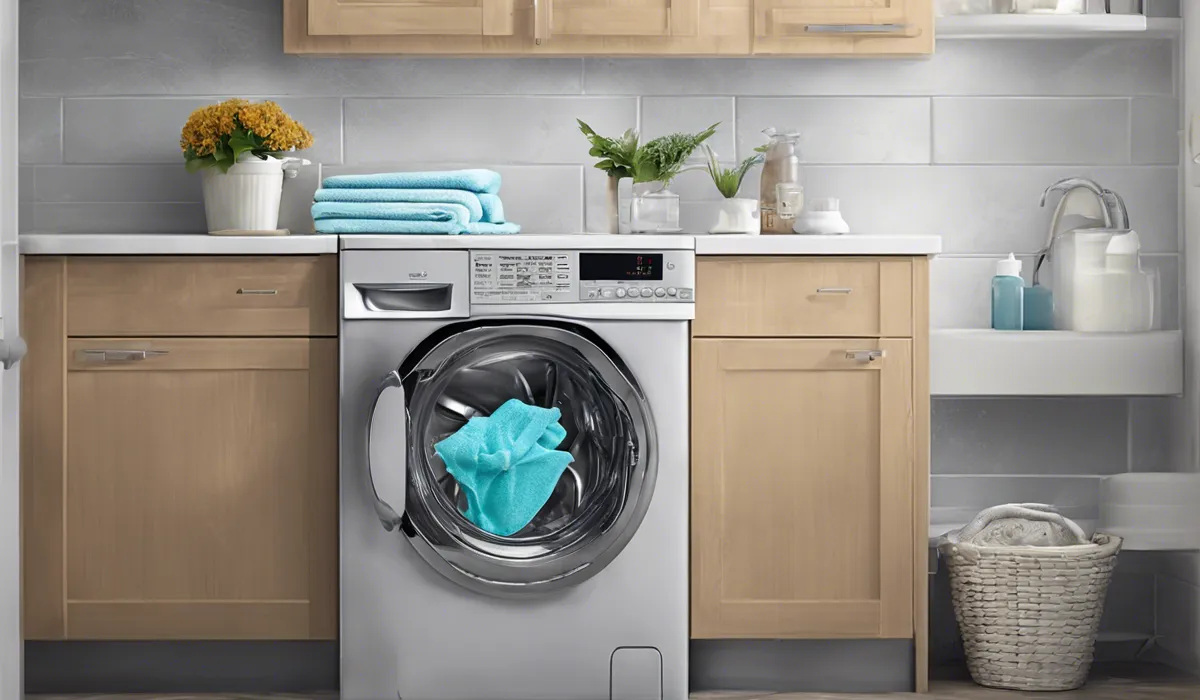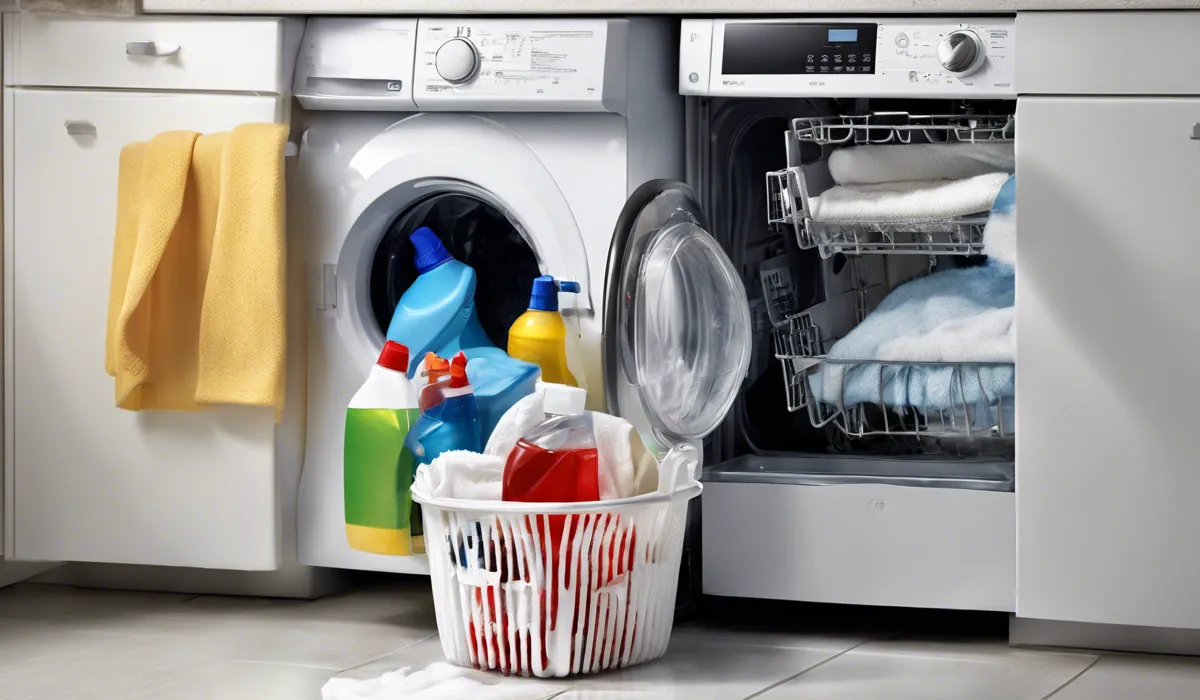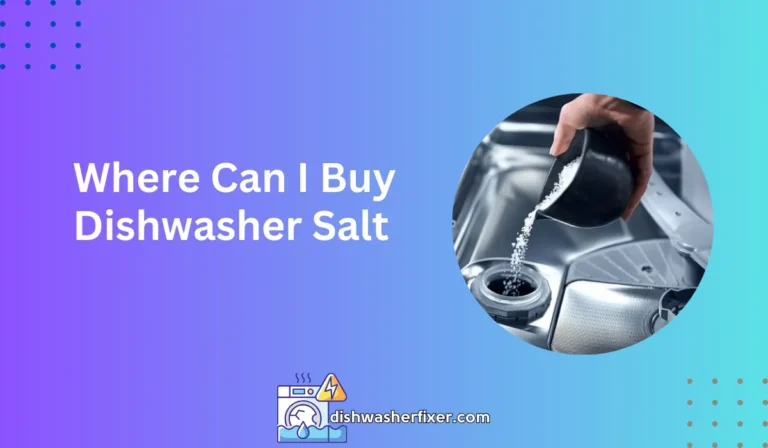Can You Use Laundry Detergent in a Dishwasher? Risks & Tips
No, you should not use laundry detergent in a dishwasher. Laundry detergents are formulated differently and can cause suds overflows, damage dishwasher components, and leave a residue on dishes.
Understanding the Differences Between Laundry Detergent and Dishwasher Detergent

Chemical Composition and Formulation of Laundry Detergents
Laundry detergents are specifically designed for use in washing machines to clean clothes and fabrics. They contain a blend of surfactants, enzymes, and other cleaning agents that work together to remove dirt, stains, and odors from textiles.
The surfactants in laundry detergent help to lower the surface tension of water, allowing it to more easily penetrate fabric fibers and lift away grime.
Enzymes such as proteases and amylases target protein-based and starch-based stains, breaking them down into smaller molecules that can be washed away.
Chemical Composition and Formulation of Dishwasher Detergents
Dishwasher detergents, meanwhile, are formulated for use in dishwashers to clean dishes, glasses, and utensils.
They contain a different combination of surfactants that are more effective at removing food residue and grease from hard surfaces.
Dishwasher detergents also have water softeners to combat the effects of hard water, which can lead to spots and filming on dishes.
Purpose-Specific Ingredients and Their Functions
The ingredients found in each type of detergent are there for a reason. In laundry detergents, stain removers and color-safe bleaches help maintain the quality and appearance of clothing.
On the other hand, dishwasher detergents need to be strong enough to break down food particles without leaving any residue that could be ingested.
These formulations are not interchangeable due to their specialized functions and the different environments in which they operate.
Risks of Using the Wrong Type of Detergent in Household Appliances
Using the incorrect type of detergent can pose significant risks to your household appliances. For instance, laundry detergents can create too many suds for a dishwasher to handle, potentially leading to overflow and mechanical issues.
Conversely, dishwasher detergents are too harsh for washing clothes and can damage fabric fibers. It’s crucial to use the correct detergent to prevent malfunctions and ensure the longevity of your appliances.
Why You Shouldn’t Use Laundry Detergent in a Dishwasher

Potential Damage to the Dishwasher’s Internal Components
Laundry detergent’s high-sudsing nature can cause significant damage to a dishwasher’s internal components.
The excess foam can lead to clogs and affect the dishwasher’s pump and drain systems, which are not designed to handle such a volume of suds.
Over time, this misuse can result in costly repairs or the need for a complete replacement of the appliance.
The Risk of Excessive Suds and Overflow
When laundry detergent is used in a dishwasher, the excess suds can overflow, creating a mess in your kitchen.
This not only requires immediate cleanup but can also lead to water damage to your floors and cabinetry. Moreover, an overflow can trigger additional safety hazards, like slips and falls.
Impact on Dishwashing Effectiveness and Potential Residue on Dishes
Laundry detergents are not formulated to rinse away cleanly from hard surfaces like dishes.
Using them in a dishwasher can leave a filmy residue on your dishes, glasses, and silverware, which is not only unappealing but can also be a health concern if ingested.
The effectiveness of your dishwasher’s cleaning cycle is compromised, meaning dishes may need to be rewashed by hand to remove the residue.
Safety Concerns and Health Implications of Improper Detergent Use
Using laundry detergent in a dishwasher poses safety concerns. The chemicals in laundry detergent are not intended for use on surfaces that come into contact with food.
There is a risk of chemical contamination which can lead to health issues if dishes are not thoroughly rinsed. It’s essential to use the correct detergent to avoid any potential health risks associated with improper detergent use.
Alternatives and Correct Practices for Dishwashing

Recommended Types of Dishwasher Detergents
For safe and effective dishwashing, it’s recommended to use detergents specifically labeled for dishwashers. These can come in various forms such as powders, liquids, gels, and convenient pre-measured tabs or pods.
Each type has its advantages, and the choice largely depends on personal preference and the specific requirements of your dishwasher model.
Homemade Dishwasher Detergent Recipes and Natural Alternatives
For those looking for a more natural approach, homemade dishwasher detergent recipes can be a good alternative. Ingredients like baking soda, citric acid, and coarse salt can be mixed to create an effective cleaning agent.
Likewise, some prefer using distilled white vinegar as a rinse aid to ensure dishes come out sparkling without the use of harsh chemicals.
Best Practices for Using and Maintaining a Dishwasher
To keep your dishwasher running efficiently, it’s important to follow best practices for its use and maintenance.
This includes regular cleaning of the filter, using the correct amount of detergent, and loading the dishwasher properly to ensure optimal water circulation. Regular maintenance can help prevent problems and extend the life of your appliance.
Tips for Choosing the Right Detergent for Your Needs and Appliance Compatibility
When selecting a dishwasher detergent, consider your water hardness, the type of dishes you typically wash, and any specific cleaning challenges you face, such as heavy grease or hard water spots.
Also, check your dishwasher’s manual for any recommendations or restrictions to ensure you choose a compatible and effective detergent.
FAQs About Using Laundry Detergent in a Dishwasher
Can I use laundry detergent as a substitute for dishwasher detergent?
No, laundry detergent should not be used in a dishwasher as it can cause damage and is not formulated for dishwashing.
What happens if you put laundry detergent in a dishwasher?
Using laundry detergent in a dishwasher can lead to suds overflows, damage to the dishwasher’s components, and residue on your dishes.
Is laundry detergent safe to use on dishes?
No, laundry detergent is not safe for dishwashing as it is not intended for cleaning food residues and can be harmful if ingested.
Can using laundry detergent in a dishwasher void the warranty?
Yes, using laundry detergent in a dishwasher can void the manufacturer’s warranty, as it constitutes improper use.
Are there any alternatives if I run out of dishwasher detergent?
If you run out of dishwasher detergent, consider using baking soda or vinegar as a temporary alternative, but do not use laundry detergent.
Final Thoughts
Using laundry detergent in a dishwasher is ill-advised due to its different formulation which can lead to excessive suds, potential damage to dishwasher components, and residues on dishes.
For optimal results and to avoid any malfunctions, it’s essential to use detergents specifically designed for dishwashers.
Useful Resources
- https://news.wisc.edu/curiosities-whats-the-difference-between-dishwasher-detergent-laundry-detergent-and-dish-soap-why-arent-they-interchangeable/
- https://www.oregonmetro.gov/tools-living/healthy-home/common-hazardous-products/detergents-dishwashing-or-laundry
- https://www.cdc.gov/healthypets/keeping-pets-and-people-healthy/cleaning-and-disinfecting-pet-supplies.html





